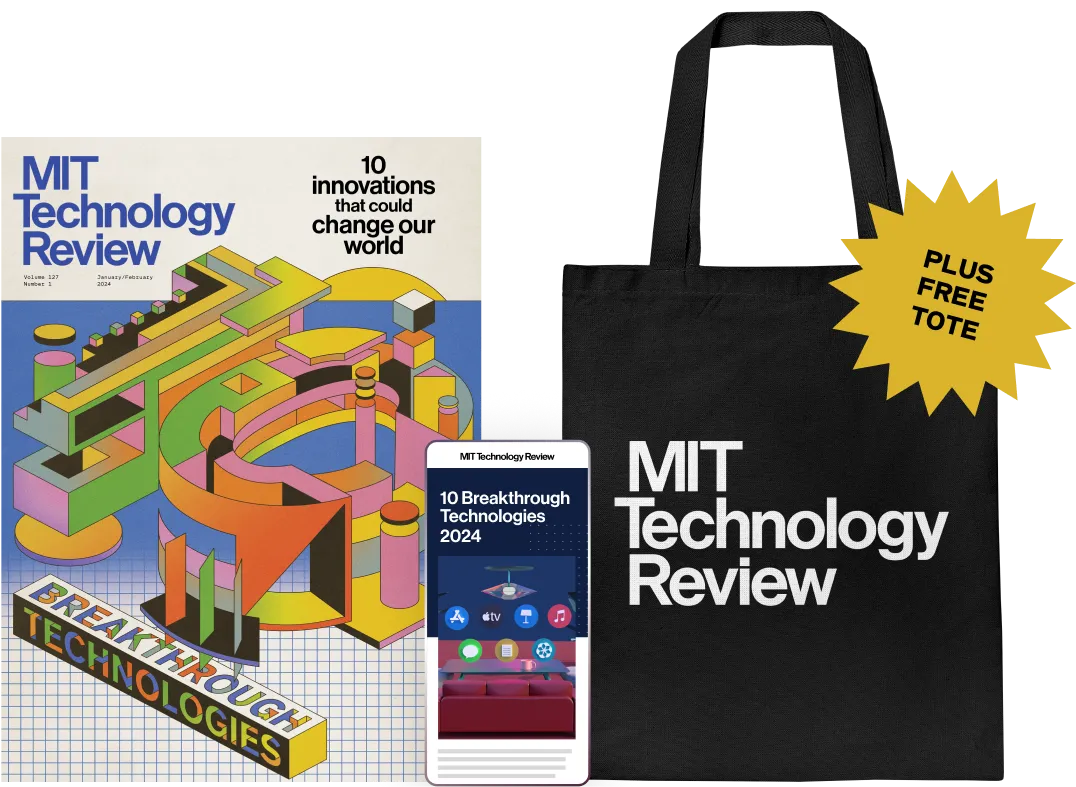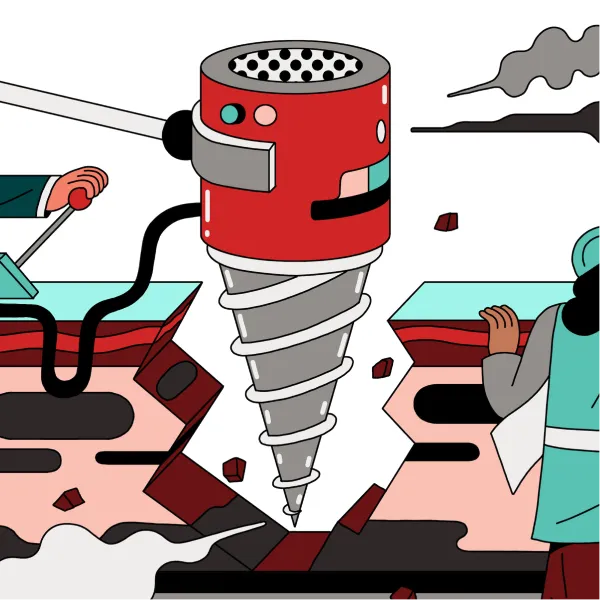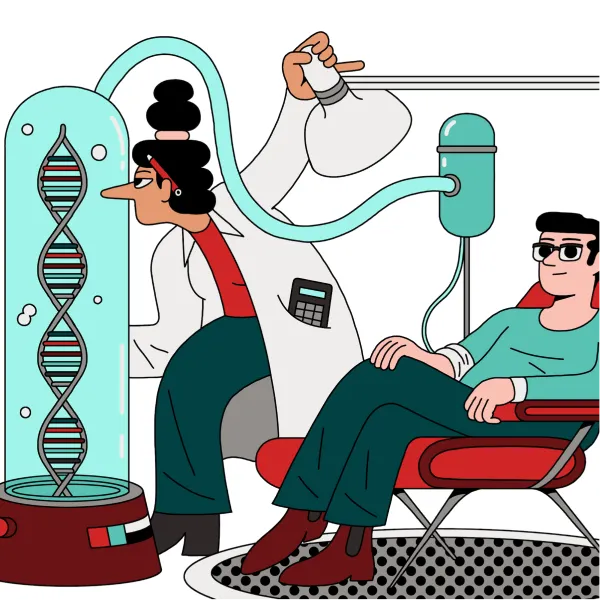

AI for everything
We now live in the age of AI. Hundreds of millions of people have interacted directly with generative tools like ChatGPT that produce text, images, videos, and more from prompts. Their popularity has reshaped the tech industry, making OpenAI a household name and compelling Google, Meta, and Microsoft to invest heavily in the technology.
Why it matters

Super-efficient solar cells
Solar power is being rapidly deployed around the world, and it’s key to global efforts to reduce carbon emissions. But most of the sunlight that hits today’s panels isn’t being converted into electricity. Adding a layer of tiny crystals could make solar panels more efficient.
Why it mattersApple Vision Pro
Apple will start shipping its first mixed-reality headset, the Vision Pro, this year. Its killer feature is the highest-resolution display ever made for such a device. Will there be a killer app? It’s early, but the world’s most valuable company has made a bold bet that the answer is yes.
Why it matters


Subscribe & save for unlimited access to our expert technology news and cutting-edge insights.
Plus, get a FREE tote.
Subscribe & Save
Weight-loss drugs
The global rise in obesity has been called an epidemic by the World Health Organization. Medications like Mounjaro and Wegovy are now among the most powerful tools that patients and physicians have to treat it. Evidence suggests they can even protect against heart attacks and strokes.
Why it matters
Enhanced geothermal systems
Geothermal energy is clean, always available, and virtually limitless. However, because of engineering challenges, we have barely scratched the surface of what it can offer. New drilling techniques, which dig deeper and in places where we couldn’t before, are unleashing more of Earth’s heat to produce clean energy.
Why it mattersChiplets
It’s getting devilishly hard to make transistors smaller—the trend that defines Moore’s Law and has driven progress in computing for decades. Engineers must now find new ways to make computers faster and more efficient. Chiplets are small, specialized chips that can be linked together to do everything a conventional chip does, and more.
Why it matters

Sign up for the Download, our daily tech newsletter.
Thank you for submitting your email!
Something went wrong, try again.

The first gene-editing treatment
New treatments based on CRISPR have been in the works for years. In the final weeks of 2023, one from Vertex became the first to earn regulatory approval in both the UK and the US for its ability to cure sickle-cell disease, a life-threatening condition. It won’t be the last.
Why it mattersExascale computers
The world’s fastest supercomputers can now perform more than an exaflop’s worth of calculations (that’s a 1 followed by 18 zeros). New machines that can crunch scientific data at these speeds will enable scientists to perform more sophisticated simulations of the climate, nuclear fission, turbulence, and more.
Why it matters

Subscribe & save for unlimited access to our expert technology news and cutting-edge insights.
Plus, get a FREE tote.
Subscribe & Save
Heat pumps
Don’t let the name fool you. Heat pumps are electric appliances that can both cool and heat buildings, and wider adoption could substantially reduce emissions. Sales have increased around the world; in the US, they have surpassed gas furnaces for the first time. New types that run at higher temperatures could help decarbonize industry, too.
Why it matters
Twitter killers
Elon Musk bought the site now known as X in 2022, and virtually nothing about it has been the same since. He fired most of the staff and dispensed with content moderation, scaring off advertisers and users alike. Now, as alternatives like Bluesky, Threads, and others gain ground, the central town square has given way to private rooms.
Why it matters
Vote for the
11th breakthrough
What’s missing from the list? Tell us what you think the 11th breakthrough should be. We’ll reveal the winner on April 15, 2024.
Back to top


Thanks for voting!
You voted for . Sign up for our daily newsletter, the Download, and be the first to see the results.
Read more about your choice:
Something went wrong!
We’re having trouble saving your email. Try refreshing this page and re-entering your email.
10 Breakthrough Technologies
Every year, the reporters and editors at MIT Technology Review survey the tech landscape and pick 10 technologies that we think have the greatest potential to change our lives in the years ahead. We consider advances in every field, from biotechnology and artificial intelligence to computing, robotics, and climate tech. This is the 23rd year we’ve published this list. Here’s what didn’t make the cut.
Explore the archives
Credits
Editorial
Special projects editor: Amy Nordrum
Editing: Rachel Courtland, Niall Firth, Mary Beth Griggs, Mat Honan, Amy Nordrum
Copy editing: Linda Lowenthal
Engagement: Juliet Beauchamp, Abby Ivory-Ganja
Fact checking: Helen Li
Art
Art direction: Stephanie Arnett
Illustration: Simoul Alva, Jennifer Dionisio, Simon Landrein
Technology
Lead developer: Andre Vitorio
Design: Vichhika Tep, Mariya Sitnova
Product: Mariya Sitnova, Allison Chase
CTO: Drake Martinet






